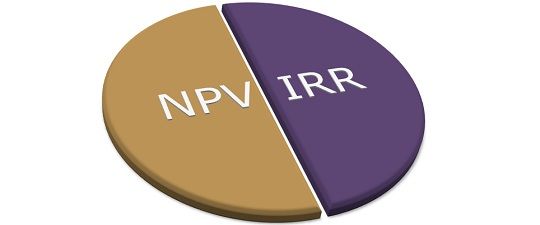Difference Between Investment And Gambling Comparison Chart
While investing and gambling do share one major feature in common, namely risk, the similarities pretty much end there: With traditional casino games, your expected return is negative (typically between -½% to more than -5% on each wager, depending on the game). In other words, the “House” (the casino) has the advantage, not the player. Is there a difference between investing and gambling? This paper will compare and contrast risk & reward, long-term & short-term, and economic growth and ze-ro-sum game. This paper seeks to determine if invest-ing and gambling are completely independent activities (Figure 1A), different activities with a degree of. The difference between a call option and a futures bet isn’t that large. Growth of the Market, Thanks to Sports Betting Beginning in the late 1990s, sports betting surged due to the increased popularity of pro sports in the United States and Europe, as well as shifting regulations (thanks to the internet). The difference between gambling and investing (updated) If the odds are stacked against us, we’re gambling. That is the case when it comes to investing on the Alternative Investment Market (AIM). It’s not just about the size of the companies we’re investing in.
- Difference Between Investment And Gambling Comparison Chart 2020
- Difference Between Investment And Gambling Comparison Chart Pdf
Gambling vs Investing
Gambling and Investing have few things in common. Both these activities involve money and are considered as commercial activities. There are many ways in which to spend one’s money to earn more. Therefore, taking a closer look at these two activities allows the reader to see that there are many differences between gambling and investing, which in turn help them understand better ways of effectively utilizing one’s resources.
What is Gambling?
Gambling is considered to be a major international commercial activity wherein most of these activities are illegal. Illegal gambling is heavily controlled or banned in many jurisdictions local and national. Aside from illegal gambling, there are also activities that are legal such as wagering money in a game without certain outcomes. Gambling is commonly practiced in casinos where the customers are provided with facilities to engage in games such as table games, electronic games and sports betting with the intention of winning extra money.

What is Investing?
Investing is a commercial activity where investors endow their money into certain ventures with the hope of gaining a regular profit. Such activities involve purchasing of financial instruments, purchasing stocks or other assets to gain profitable returns. These benefits or profits are actualized within a certain time frame and can be gained in capital appreciation, interest or dividends. Most forms of investments however, involve a certain amount of risks and, therefore, it is important to back such investments with a certain amount of research prior to getting involved.
What is the difference between gambling and investing?
Whether it is gambling or investing, various individuals engage their money in different ways with the aim of increasing their assets. Gambling and investing are two common means that people choose for this purpose. While there are certain similarities in both these methods, it must be said that gambling and investing are two different methods of utilizing one’s money.
• Gambling and investing are both ways of making their money profitable.
• Gambling involves engaging in a variety of games in order to gain profit. Investing is a more serious and professional means of utilizing one’s means in increasing one’s assets.
• Gambling is more of a recreational activity. Investing is a serious activity that involves research and background knowledge.
• More than in investment, there is a higher risk in gambling.
• Gambling is commonly found in casinos while investing is done in establishments such as banks and businesses.
• The risk of losing money is very high in gambling whereas in investing there are tools to forecast the return.
Related posts:
Podcast: Play in new window Download
LISTEN (mp3audio) (5:45 min)
Right before the 2010 Super Bowl, a page 1 article in the February 5, 2010 Wall Street Journal opened with this sentence:
“Investors are sometimes accused of treating the stock market like a casino. Now, one Wall Street firm wants to treat casinos like the stock market.”

The article details the decision of a Wall Street bond-trading company to take over the management of sports betting at a new Las Vegas casino. Lee Amaitis, the company executive who runs the betting operation, says the firm got into sports gambling because “we wanted to turn gamblers into traders.” Using sophisticated financial-markets software, bettors can not only bet on the final outcome, but also make wagers on events during the game, such as whether the next pass might be completed, or who kicks next field goal.
On several occasions, the article noted similarities between investing and gambling. The article even featured a bond trader-turned-professional gambler who said “Wall Street is just a form of legalized gambling.”
Is investing just a form of gambling? For many investors, the answer may be “yes.” But it doesn’t have to be. And it probably shouldn’t be.
In July 2000, Tom Murkco, the CEO of Investor-Guide.com, published an essay titled “What is the difference between gambling and investing?” While Murkco noted that many aspects of gambling and investing might appear similar, there were several distinct and easily defined differences.
For either investing or gambling, the beginning of Murkco’s definition is the same: An activity in which money is put at risk for the purpose of making a profit.
But while the purpose of gambling and investing is identical, the methods by which the purposes are achieved are drastically different.
Here are Murkco’s distinctions:
When someone invests…
- sufficient research has been conducted;
- the odds are favorable;
- the behavior is risk-averse;
- a systematic approach is being taken;
- emotions such as greed and fear play no role;
- the activity is ongoing and done as part of a
- long-term plan;
- the activity is not motivated solely by entertainment or compulsion;
- ownership of something tangible is involved;
- a net positive economic effect results.”

When someone gambles…
- little or no research has been conducted;
- the odds are unfavorable;
- the behavior is risk-seeking;
- an unsystematic approach is being taken;
- emotions such as greed and fear play a role;
- the activity is a discrete event or series of discrete events not done as part of a long-term plan;
- the activity is significantly motivated by entertainment or compulsion;
- ownership of something tangible is not involved;
- no net economic effect results.
When defined this way, it’s easy to see the differences between investing and gambling. It’s also easy to see that because of the methods some people use to invest, their behavior may more closely resemble gambling.
For example, industry studies have repeatedly shown that the behavior of mutual fund investors often accounts for poor investment performance. Because they don’t approach investing systematically, emotions like greed and fear may cause people to make impulsive decisions, with little or no research. Not surprisingly, the results from these methods more often resemble the returns from lottery tickets.
Not Gambling with Your Investments: Easier said than done?
In his book, Snap Judgment: When to Trust Your Instincts, When to Ignore Them, and How to Avoid Making Big Mistakes With Your Money,author David Adler says it’s the psychological component of investing that is the most difficult to manage. Adler contends that behavioral research shows many individuals have an almost over-whelming set of hard-wired dispositions to take gambles rather than make investments. Adler quotes Andrew Lo, an MIT professor of finance:
“The same neural circuitry that responds to cocaine, food, and sex has been shown to be activated by monetary gain as well.”
For some people, the thrill of investing/gambling can be addictive. But when the stakes are one’s financial future or retirement, or your children’s college education, the need for a thrill shouldn’t come by jeopardizing one’s investments.
Difference Between Investment And Gambling Comparison Chart 2020
This imperative to not compromise investing by gambling highlights one of the greatest benefits of working with a team of financial professionals: Besides receiving informed advice, a financial professional can often serve as a protection against gambling with your investments, by encouraging you to make sound decisions based on good research that have a high likelihood of success.
Difference Between Investment And Gambling Comparison Chart Pdf
Take a moment to consider the last few major financial decisions you’ve made in the past year. Then look at the list above. Did you make an investment or take a gamble?